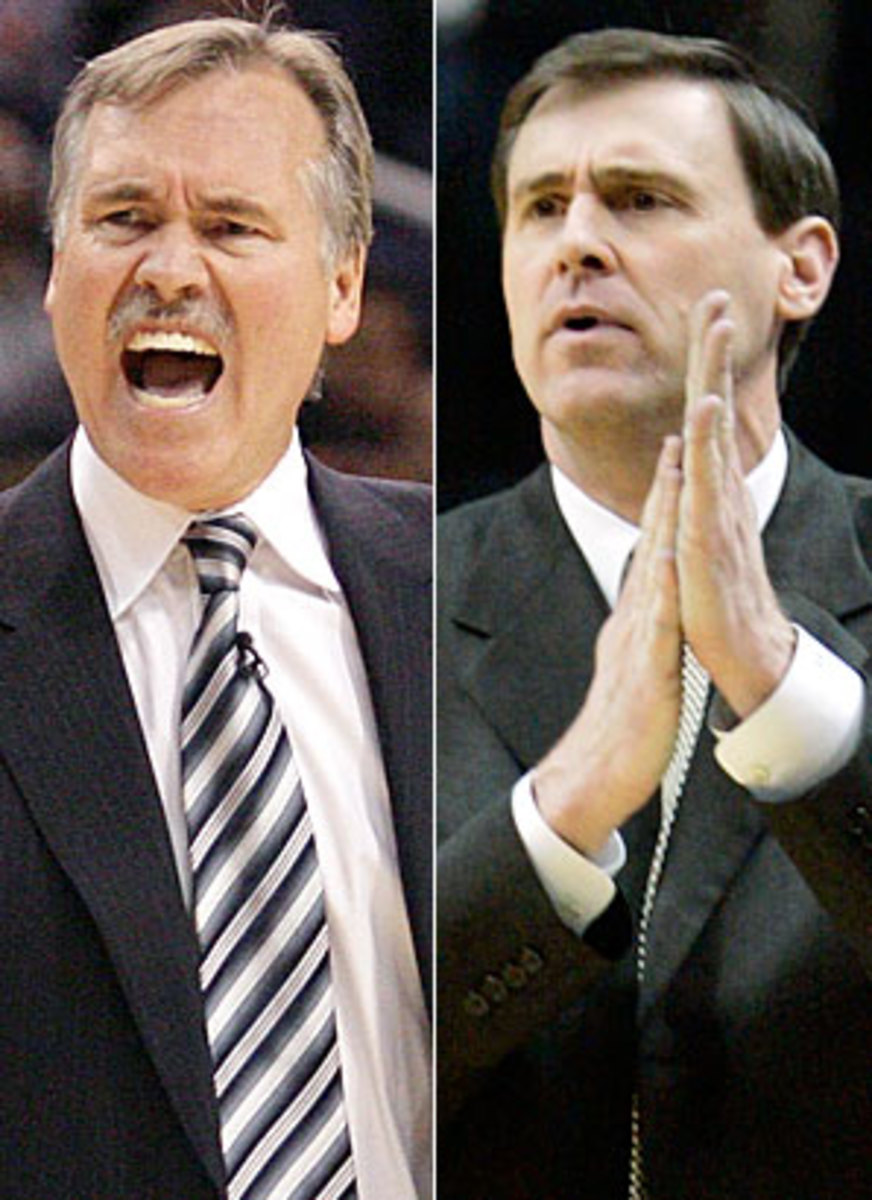D'Antoni and Carlisle will be difference makers with new teams
The NBA has long been considered a players' league, with coaches often serving as little more than interchangeable commodities. That helps explain the high turnover rate for coaches -- 23 percent (seven out of 30) already this season after 30 percent last season.
But it's not that simplistic.
Granted, talent is the most important contributor to success for every team. Teams can indeed win with an inferior coach, but not without superior talent. But over the long haul, the coach does make a difference, because in today's NBA, his role goes far beyond just being an X's-and-O's thing.
Sure, you can run a Princeton offense or a triangle or another kind of motion offense as your basic set, but more times than not, every team resorts to some sort of pick-and-roll or just giving its superstar the ball and letting him create something. Coaches can play up-tempo, use a controlled offense or, as most prefer, a combination of the two. Defensively, coaches can insist that players go underneath screens, over the top or switch on them. They can play zones, double-team, overplay, trap, press or play everything straight. They make adjustments at halftimes, tweak things here and there and often rely on the common sense of their players. If the coach stresses defense as much as offense, he has more options to go to when things aren't going well, so too much emphasis on one and too little on the other results in falling short of a championship.
After those basics are addressed, in order to win, a coach's fate will ultimately be decided by the respect he garners from his players -- how he motivates and keeps his team focused and gets it to believe in him and his system while playing hard and playing together at all times. Believe it or not, also at this level, the coach still has to somehow make it fun to play for him. The NBA is indeed big business, but behind the dollars, it is still a game that the players love to play. For most of them, if they weren't making their living playing professionally, they'd be playing pickup ball for free at every opportunity. Coaches know this and it does affect the way they coach.
Beyond those factors, keeping the owner and general manager out of his every-day business, thus sending the message to the team that he and only he is in charge of what takes place on the court, is also vital. Players want to be led. They want to trust their coach. If someone above is second-guessing the coach, it isn't long before the players do the same thing, and then it's good night.
Most coaches, in simple terms, want the owner to be a fan and pay the bills, and the general manager to get him the players he needs to play the game he favors.
With all that said, it is easy to understand why the Knicks picked Mike D'Antoni as their new coach and the Mavericks went with Rick Carlisle.
Though the two are not much alike as coaches, they are precisely what their respective teams need. These are proven coaches who know how to win. D'Antoni's job is going to be a lot harder than Carlisle's because Dallas is a 50-win-a-season playoff team while New York is on the ground floor.
There is no question that if you polled NBA players about which team's offense they would like to play in, they'd say the Suns', and that's because of D'Antoni. Phoenix was never very good defensively under him, but he won anyway and his team was the league's most exciting to watch. That wasn't lost on Knicks president Donnie Walsh. If the players have fun and the game is exciting, the fans can stomach losing for a while. Losing 135-130 will get people coming back and keep players interested. Losing 75-70 won't do either.
For the Knicks, it's a question of buying a little time, cleaning up the roster, establishing a system, getting under the salary cap and making it an attractive place for the potential blockbuster free-agent class of 2010. That's when LeBron James, Dwyane Wade, Chris Bosh and Amaré Stoudemire, among others, can opt out of their current contracts.
Carlisle's teams, in both Detroit and Indiana, were far more balanced than D'Antoni's. He teaches offense, believes in defense and knows you need a commitment to both in order to win. Because he is a serious, no-nonsense guy who believes in player accountability, he isn't the most fun coach for whom to play. But he will give direction to the Mavs, who had become predictable, frustrated and of fragile confidence.
Both teams figure to be better next season. You will be able to credit the coach for much of that.






